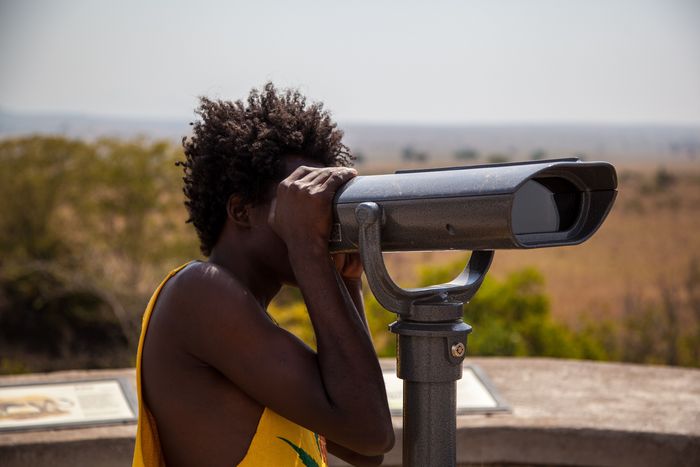International travel restrictions due to COVID-19 make national tourism markets appealing for tourism practitioners and public stakeholders - not only in Europe. In African countries like Uganda, too, more and more countries are broadening their focus on domestic tourism. This is an opportunity for strengthening women in the industry and fostering female empowerment. With 1.3 million international tourists in 2018, the tourism industry in Uganda relies dominantly on the international market while reliable numbers on domestic tourists don’t even exist. However, the pandemic has shown the need for accelerating domestic tourism. International arrivals in Uganda have decreased by up to 75 per cent due to COVID-19. Pushing domestic tourism can help to compensate for this dramatic development - but also has positive long-term economic effects. New jobs are created which don’t require the same formal skills and investments that international tourism does. Also, the revenues from domestic tourism remain in the country hence curbing the revenue leakage that happens in international tourism.
Domestic tourism: The superpower of female tourism entrepreneurs
Female tourism entrepreneurs in Uganda find it difficult to gain a foothold in the international tourism industry. Most of them run smaller businesses in transport, accommodation, catering, and sightseeing. The international market however tends to work with larger tourism enterprises. Thus, the increase of domestic tourism can be a big chance – and pays off in particular for women in Uganda. Not only the demand for their services is higher, they also benefit from better networking in the domestic market. Several local tour operators are consciously supporting women in the destinations, for example by cooperating with accommodations, restaurants and shops that are run by women or by hiring female guides and group coordinators. “The range of job opportunities for women in domestic tourism is wider than in international tourism as language and cultural barriers do not exist. Women speak the same language as national guests - not only in a linguistic way. They know their norms, traditions and customs“, says Gloria Tumwesigye, CEO of the Association of Uganda Tour Operators.
But domestic tourism does not only create direct jobs in tourism, says Jean Byamugisha, Executive Director at the Uganda Hotel Owners Association. “With COVID-19 shutting down the international market, Uganda had to turn to a robust domestic tourism campaign to bridge the gap. As a result, women in tourism are now broadening their skills. For example, many are investing in the arts and craft market to diversify and boost their income. Domestic tourism also offers opportunities in agriculture, which is another female driven industry that works very closely with the hospitality sector.“
Travel opportunities next door
Domestic tourism also opens new doors for female travellers. Especially women from the Global South often have limited travel options: Many lack time for travelling due to the many chores they have to fulfil, cannot afford the cost of international travel and depend on their partners consent to facilitate their trips.
Traveling solo also comes with security concerns. Despite having a time of joy and pleasure, many women in Uganda have made negative experiences while travelling: „Whether you are a single lady or a group of women you are sure to draw attention and yet unnecessary attention can lead to unwanted scenarios and uncomfortable encounters. The first thing assumed about a group of ladies on vacation is that they are busy spending their husbands’ money or they are looking to escape the responsibilities of life. Sometimes men assume the woman is an easy catch since she is by herself. No matter how well equipped, cautious or trained with self-defence, there’s always the risk of running into danger”, Gloria Tumwesigye explains. Domestic tourism, however, is a safer way for women to appreciate the opportunities that travel brings, as they are familiar with the cultural environment. Domestic tourism can also promote gender equality. When women are able to interact with people outside their community, they increase their knowledge on gender roles and are more likely to reflect their own situation.
Women in Uganda have selected reasons why they travel. They travel to visit friends and relatives, or go for religious reasons, for funerals or festivals. If travel in these areas can be improved with effective marketing techniques so that women are reached in their local language, and if the travels are effectively packaged to be cheaper and more pleasant, it will attract more women to travel. To entice more women for leisure travelling, responsible tourism authorities have to raise awareness about their benefits through domestic tourism. Promotional activities like reduced entrance fees for domestic travellers or tours in bigger groups can be a way to make domestic trips more affordable and limit security issues for travelling women.
Women as Agents of Change
To foster an inclusive, gender-equitable transformation of the tourism sector, women must be actively involved in the planning for the expansion of domestic tourism. They bring special expertise in the sector. They speak the local language and know the combination of activities that amuse and wow domestic travellers. Women being involved as entrepreneurs can come up with more small-scale businesses that will boost domestic tourism. „Female entrepreneurs have different ideas to push domestic tourism. For example, Allen, the founder of the ‘Uganda Uncovered’ blog, was able to identify gaps in marketing Uganda as a premier tourism destination for the domestic market. Now, products like shirts, jackets and caps with slogans are successfully sold as a marketing asset“, says Gloria Tumwesigye.
According to Jean Byamugisha, involving women in all aspects of tourism benefits their entire communities: „In Uganda, the woman is the backbone of the family. By empowering a woman, you empower a community. Though women don’t earn as much as men in many sectors including domestic tourism, they invest more back into their communities as a result of their empowerment.“



